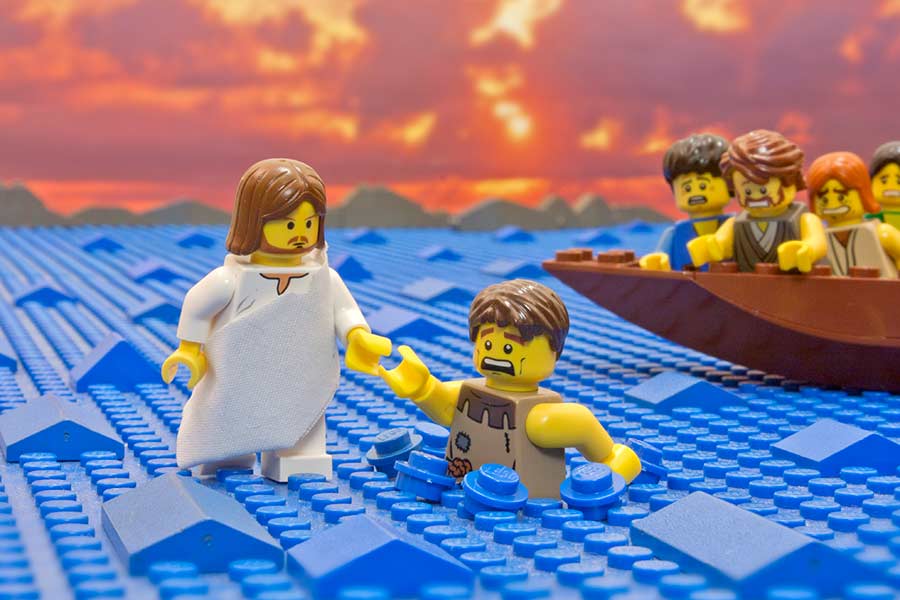The Republican political party was founded in 1854, and urged Congress to outlaw the "twin relics of barbarism—polygamy and slavery." Democrats denounced Mormons just as vehemently, and when their candidate James Buchanan was elected president in 1856, he made good on his promise to remove Brigham Young as governor of Utah. He sent a military force of 2,500 to accompany his appointed replacement, Alfred Cumming of Georgia.
Church leaders responded by issuing a proclamation stating "We are invaded by a hostile force, who are evidently assailing us to accomplish our overthrow and destruction," and vowed to use force to "repel any invasion." Church members vowed they would sooner burn their own villages than allow them to be taken. By late summer of 1857, Brigham Young had declared martial law, mustered the Nauvoo Legion, ordered the building of fortifications, and formed raiding parties to harass the US Army.
The defiant sermons of Young helped create an environment of fear and hostility toward outsiders in Utah. In September, a wagon train of US civilians heading from Arkansas to California was passing through Southern Utah. As they camped 35 miles from the Mormon colony of Cedar City, local Church leaders—who also held key civic and militia leadership roles—advocated violence. A hastily organized attack on the emigrant company was driven off by the well-armed citizens, but a siege ensued, preventing their departure.
John D. Lee, a Nauvoo Legion major appointed by Brigham Young, then brought other militia members with him to meet with the local Paiute tribe, and successfully recruited them in a plan to carry out a deliberate massacre. On September 11, the Mormons approached the circled wagon trains under a flag of truce. Given promises of safety and protection if they would give up their weapons, the emigrants were lured into a diabolical trap.
Upon surrendering their weapons, the emigrants were immediately betrayed. Paiute warriors suddenly appeared and joined with the Mormons in a bloody massacre of man, woman, and child. In all, 120 defenseless civilians were slaughtered, with only 18 spared who were judged too young to be able to tell anyone what had happened. Two weeks later, a report of the incident was sent to Salt Lake City, blaming the violence entirely on the Native Americans.
Meanwhile, as the US Army approached Utah, a unit of the Nauvoo Legion known as the Mormon Raiders harassed the oncoming troops by burning 74 wagons carrying supplies, stealing 1,400 of their cattle, and burning down two forts that the federal troops were expected to occupy. In addition, sniper's nests were constructed in mountain passes and boulders prepared to rain bullets down upon the enemy.
War was narrowly avoided when President Buchanan sent commissioners to Utah to negotiate peace. In the resulting agreement, the Mormons would be fully pardoned of any wrongdoing after affirming their loyalty to the US government and permitting the stationing of federal troops at a military post 40 miles from Salt Lake City. On June 26, 1858, the army's infantry passed Salt Lake City singing the old marching song "One Eyed Riley", most of the words to which are not fit for print.
Although the army's stay in Utah was an economic boon for the Saints, it introduced many vices to the region including saloons and houses of prostitution. An anti-Mormon newspaper was even established and ran for a year and a half, bitterly denouncing members of the Church as traitors and murderers. After three years the army abandoned their Utah post, selling off to the Saints $4 million in surplus goods at a fraction of their value.
When the US Civil War broke out in 1861, the Saints remembered that the prophet Joseph Smith had prophesied in 1832 that a rebellion in South Carolina would divide the Southern States against the Northern States. Future Church president John Taylor captured the feeling of a majority of the Saints in a speech denying aid, saying, "Shall we join the North to fight against the South? No! Why? They have both brought it upon themselves."
The Saints believed that this four-year conflict in which 602,000 people died was a judgment against the people of the United States for the murders of the prophet Joseph Smith and his brother Hyrum, and for their failure to keep the commandments of God. "Our enemies, who sought to destroy us, are being humbled," said Brigham Young.
NEXT:
Also from the creator of The Brick Book of Mormon:

